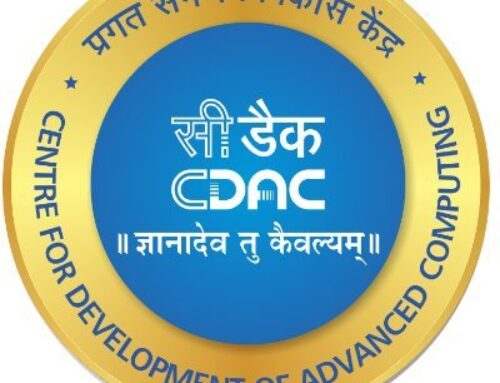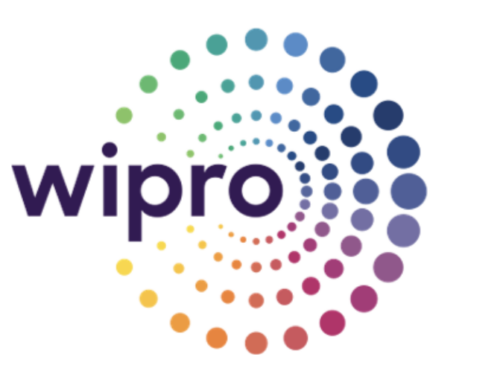The fintech ecosystem in India has witnessed remarkable growth, especially in the digital payment space. From mobile wallets and UPI to the rise of QR codes, India has quickly become a leader in digital payments. However, while there has been some progress, the Indian payment ecosystem still faces numerous challenges such as fragmentation, poor user experiences, lack of interoperability, and increased risks of fraud. Amid these challenges, OmniCard has emerged as a trailblazer, driving payment innovation with a strong emphasis on regulatory compliance. This blog delves into the current state of India’s payment ecosystem, the barriers to true innovation, and how OmniCard is reshaping the landscape with its groundbreaking solutions.
The Indian Payment Ecosystem: A Fragmented Landscape
India’s digital payment ecosystem is diverse, catering to millions of consumers, merchants, and businesses. However, it continues to grapple with issues that hinder seamless transactions.
- Fragmented Systems for Different Payment Types:
The Indian payment system is still highly fragmented. While UPI (Unified Payments Interface), mobile wallets, POS machines, and closed-loop cards have gained prominence, they often operate in isolation. Each platform is typically designed to serve a specific need, which forces users to switch between different systems for various transactions. For instance, UPI is ideal for transferring funds, mobile wallets are suited for digital purchases, and POS machines are used for physical transactions. The lack of integration between these systems creates inefficiencies and adds complexity to the overall user experience.
- Poor User Experience Across Channels:
Despite the proliferation of digital payment solutions, many users still face a fragmented and inefficient experience when conducting transactions. Whether online or offline, there is a lack of cohesion between payment platforms. In many cases, consumers must navigate complex processes, deal with multiple apps, or rely on outdated infrastructure. These hurdles discourage wider adoption and leave users frustrated.
- Lack of Interoperability:
The issue of interoperability between different payment platforms and methods remains one of the biggest challenges in the Indian payment ecosystem. For example, transferring funds between two different mobile wallets or using a specific payment method across multiple merchant platforms is not always possible. This lack of connectivity between various payment solutions prevents users from seamlessly moving between platforms and undermines the convenience of digital payments.
- Increased Risk of Scams and Phishing:
One of the biggest security concerns in the Indian payment landscape is the exposure of sensitive financial information. A majority of digital transactions still rely on linking bank accounts to various payment systems, which leaves consumers vulnerable to fraud. Scammers often exploit these systems, using phishing attacks to steal bank account details. Users who rely on a single bank account for various transactions are at risk of losing large sums of money, leading to financial instability.
The Bigger Picture: Lack of Innovation in the Last Decade
While digital payments have certainly come a long way, innovation in India’s payment landscape has been incremental at best over the past decade. While solutions like UPI, soundboxes, mobile wallets, and Fastag have become commonplace, the evolution of the digital payment ecosystem has largely been limited to improving existing systems rather than creating entirely new ways to make payments.
- Slow Pace of Innovation:
Over the last ten years, India has seen a series of incremental innovations—such as UPI, mobile wallets, and QR-based payments—that have undoubtedly made digital transactions more accessible. However, these advancements have often been focused on solving narrow use cases. While these solutions have made payments more efficient in certain contexts, they have not fundamentally redefined how payments are made across different channels or how payment systems interact with one another.
- Fragmented Payment Solutions:
Despite the proliferation of various payment solutions, there is still no unified, omnichannel system that seamlessly integrates all forms of payments. Consumers must deal with a different platform for every transaction type. This fragmented ecosystem increases the time spent on transactions, often complicates processes, and leads to confusion among users who need to switch between various payment options. The absence of a unified payment experience stifles growth and adoption of digital payment methods.
- Operational Inefficiencies and Bank Account Exposure:
Many users still rely on their primary bank accounts to carry out daily transactions, including bill payments, mobile wallet top-ups, and online purchases. This exposes their primary bank account to daily payment risks, making it vulnerable to fraud and phishing attacks. Furthermore, users often struggle with overspending because of the lack of clear tracking between different spending categories.
OmniCard: Leading Innovation in Payment Systems
In response to these challenges, OmniCard has emerged as one of the most innovative fintech players in India. Combining cutting-edge technology with regulatory compliance, OmniCard is addressing the gaps in India’s payment ecosystem by offering integrated, omnichannel payment solutions that bridge the gaps between various platforms. Let’s take a closer look at some of the key innovations brought to the market by OmniCard.
Key Innovations by OmniCard:
- India’s 1st Company to Launch RuPay Wearables: OmniCard made history by launching India’s first RuPay-powered wearables. This innovation allows users to make payments simply by wearing a device like a smartwatch or a fitness band, eliminating the need for physical cards or mobile phones. This touchless, seamless payment experience represents a major step forward in India’s journey towards cashless payments, making transactions more convenient and secure.
- Premium Leader in Event Access: OmniCard has positioned itself as the premium provider of entry access solutions for large-scale events. By integrating payments with access control, OmniCard is revolutionizing the way people experience live events. Attendees can now access events with a single, integrated solution that combines payment and entry, improving efficiency and security.
- First Fintech to Issue Corporate Gift Cards with ONDC: OmniCard is also the first fintech company in India to launch corporate gift cards through the Open Network for Digital Commerce (ONDC). These corporate gift cards provide businesses with a powerful tool for rewarding employees and clients, while ensuring seamless integration with digital payment systems.
- First RBI-Licensed PPI to Enable Cash Withdrawals at ATMs: OmniCard became the first RBI-licensed Prepaid Payment Instrument (PPI) provider to allow users to withdraw cash from ATMs across India, even without a linked bank account. This revolutionary step addresses the needs of underserved populations who do not have access to traditional banking services, providing them with greater financial flexibility.
- First PPI to Integrate with UPI: OmniCard became the first PPI in India to go live with UPI integration, enabling real-time payments across platforms. By incorporating UPI functionality, OmniCard is making payments faster, more efficient, and more secure, while also simplifying the process for users who no longer need to manage multiple payment platforms.
- A Unified Card for Multiple Payment Types: OmniCard’s innovative offering provides a single card for multiple types of payments—whether UPI, POS, online transactions, transit, or cash withdrawals. This unified solution reduces the need for multiple cards, wallets, and apps, offering users an integrated experience that bridges the gap between different payment methods.
The Future of Payments: OmniCard’s Impact on the Ecosystem
OmniCard’s disruptive approach to payment innovation, with a strong focus on regulatory compliance, is redefining the digital payments landscape in India. By integrating multiple payment methods into a single platform and offering solutions that prioritize security and user experience, OmniCard is paving the way for the next generation of payments.
Its innovations—from RuPay wearables to UPI-enabled PPIs—are addressing the current pain points in the payment ecosystem, such as fragmentation, security risks, and inefficiencies. OmniCard is not only improving the user experience but also contributing to financial inclusion by offering services that cater to underserved populations and reduce reliance on traditional bank accounts.
As the digital payment landscape continues to evolve, OmniCard’s solutions are well-positioned to meet the needs of both consumers and businesses, enabling seamless, secure, and efficient transactions across multiple platforms.







